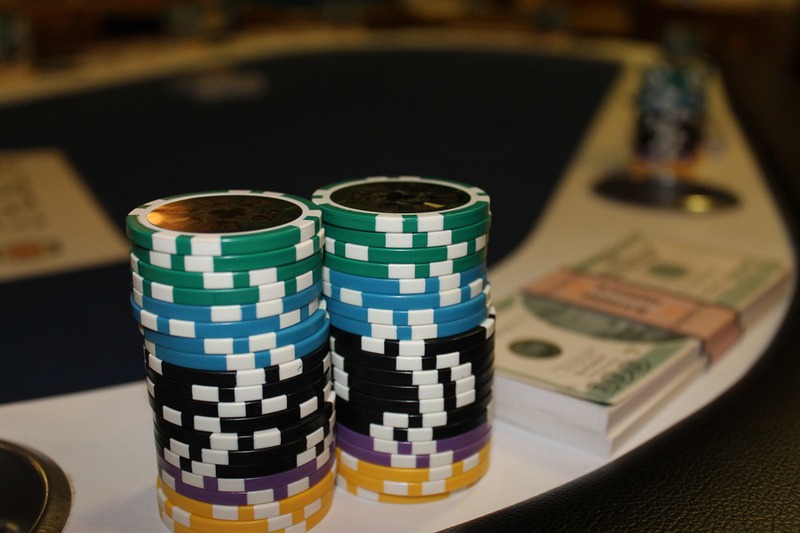






Nevada Poker Market's Seventh Consecutive Month Of Growth Is Longest Streak In A DecadeSilver State Poker Market Rebounds After Lackluster Start To Year |
|
|

After a rough start to 2017, Nevada’s poker industry is on a winning streak.
State gaming regulators said Thursday in a revenue report that the state’s 62 brick-and-mortar poker rooms and one online poker operator raked a combined $8.9 million last month, which was an uptick of 0.44 percent compared to November 2016. The cash game revenue was virtually flat, but it did mark seven straight months of year-over-year growth for the industry. The poker rooms have seen gains every month since May.
The seven consecutive months is the longest streak since 2007, according to historical data compiled by the University of Nevada Las Vegas’ Center for Gaming Research. A winning streak lasting at least several years was snapped in July 2007, as the Silver State’s poker boom was winding down. A federal law affecting online poker known as UIGEA went into effect in 2006.
Nevada’s poker rooms, which had a combined 580 tables last month, began the year with year-over-year declines from January to April. Over the 12 months prior to Dec. 1, 2017, the poker market of $118.3 million was half a percentage point better than the same period a year prior.
The winning streak was highlighted by June 2017, which featured 30 days of WSOP action. That month was the best June for the industry in a decade. In July, rake of $12.4 million was the best for the rooms for that month in six years.
.jpg) The WSOP set a participation record in 2017 with 120,995 total entries. There were a record 74 tournaments on the schedule this year, paying out an all-time high $231 million in prize money. The number of entries (not unique players) was up 12.2 percent year-over-year.
The WSOP set a participation record in 2017 with 120,995 total entries. There were a record 74 tournaments on the schedule this year, paying out an all-time high $231 million in prize money. The number of entries (not unique players) was up 12.2 percent year-over-year.
Here’s a look at the monthly totals and the year-over-year changes in 2017:
January: $9m (-5.29%)
February: $8.8m (-1.58%)
March: $9.6m (-0.73%)
April: $8.4m (-1.54%)
May: $8.9m (0.38%)
June: $16.6m (3.35%)
July: $12.4m (1.07%)
August: $8.5m (4.01%)
September: $8.7m (3.56%)
October: $8.7m (0.31%)
November: $8.9m (0.44%)
December: TBD
The last calendar year that the rooms saw growth was 2013, when revenue of $123.8 million was an increase of 0.56 percent over 2012. This year is set to be just the second time since 2007 that revenue increased compared to the prior calendar year.
It is worth noting that the growth for Nevada poker was outpaced by the overall state gaming win. Gamblers spent $11.56 billion at Silver State casinos over the 12 months prior to Dec. 1, 2017, an increase of 2.5 percent compared to Dec. 1, 2015 to Nov. 30, 2016. However, most of those gains were thanks to increased slot machine revenue (three percent increase versus a 1.6 percent increase for table games/sports betting).
Nevada’s poker supply isn’t what it once was. The 62 rooms open last month were three fewer than were in business in November 2016. There were 106 rooms in November 2007.
This year, the Las Vegas Strip lost rooms at Luxor, Monte Carlo and Hard Rock.
 What is preventing Nevada poker from growing significantly again? Nevada launched online poker in 2013, but with a lack of liquidity those games haven’t been as robust as originally anticipated. Nevada’s iPoker market is said to be worth less than $10 million a year.
What is preventing Nevada poker from growing significantly again? Nevada launched online poker in 2013, but with a lack of liquidity those games haven’t been as robust as originally anticipated. Nevada’s iPoker market is said to be worth less than $10 million a year.
“The proliferation of casinos across the United States has decreased the need for players to travel to Nevada to play poker,” Michael Lawton, Senior Research Analyst for the Nevada Gaming Control Board, told Card Player earlier this year. “At this point, the consensus is that traditional poker will not experience any significant growth without a national interactive component to support growth in traditional poker by introducing new players to the game.”
In October, New Jersey announced that it inked a deal to share online poker players with Nevada and Delaware, a move that could help poker games in all three markets. Later in October, Pennsylvania’s governor signed a gambling expansion bill that includes the regulation of online poker. Pennsylvania could eventually join forces with the aforementioned three states.
There will be nearly 26 million people exposed to online poker between those four states.
In 2018, Rhode Island, Michigan, West Virginia, New York and Massachusetts are all set to consider the regulation of real-money online casino games, including poker.
